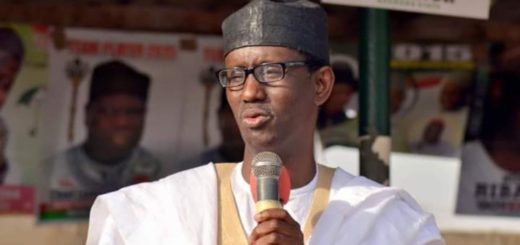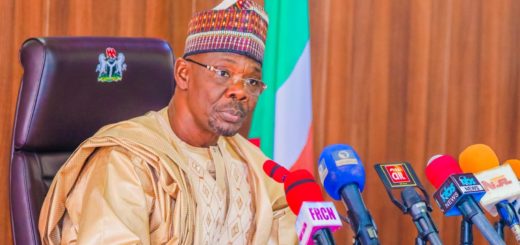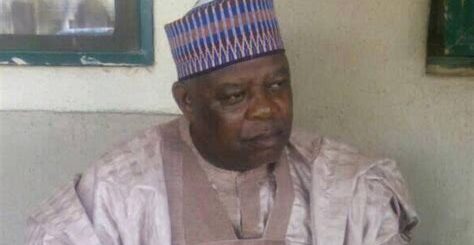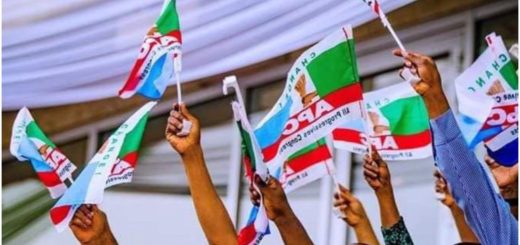“The Sharia Panel Debate: Access to Justice or Threat to Secularism?”
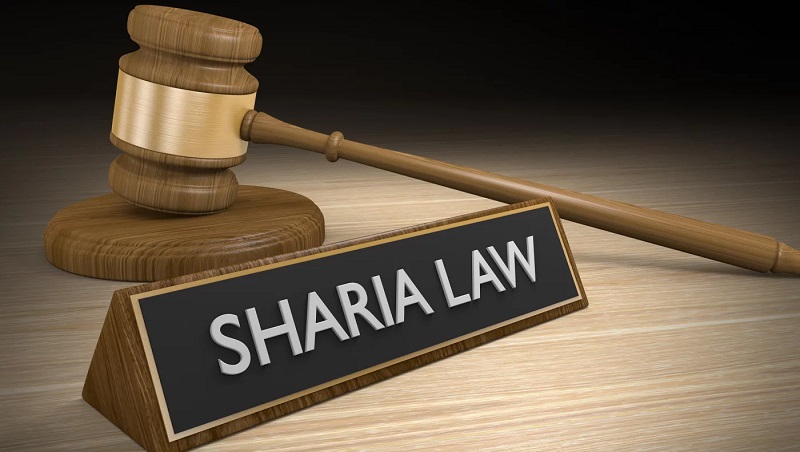 The controversy over the Sharia panel in the South-Western states of Nigeria reached a boiling point when a flyer circulated by the Supreme Council for Sharia in Nigeria (SCSN) in Oyo State inaccurately announced the creation of a Sharia court instead of an independent arbitration panel to address civil and marital disputes among Muslims. This confusion led to an outcry from Yoruba socio-political groups and online commentators, forcing the Islamic council to indefinitely suspend the event.
The controversy over the Sharia panel in the South-Western states of Nigeria reached a boiling point when a flyer circulated by the Supreme Council for Sharia in Nigeria (SCSN) in Oyo State inaccurately announced the creation of a Sharia court instead of an independent arbitration panel to address civil and marital disputes among Muslims. This confusion led to an outcry from Yoruba socio-political groups and online commentators, forcing the Islamic council to indefinitely suspend the event.
At the heart of the dispute is a deep constitutional question. According to Section 275(1) of Nigeria’s 1999 Constitution, state governments can establish Sharia Courts of Appeal to serve their Muslim populations if they see fit. While this provision exists, governors of South-Western states have avoided establishing such courts, leaving Muslims with no clear forum to settle issues related to Islamic personal law. The Sharia Arbitration Panel was intended as a voluntary alternative to provide Muslims with a way to resolve marital, inheritance, and personal disputes in line with their faith.
A Misunderstood Initiative: Arbitration, Not a Sharia Court
Despite being legally permissible, the establishment of Sharia courts is not mandated by the Constitution, nor does it force anyone to adopt such a system. Northern Nigeria already operates Sharia Courts of Appeal in thirteen states, including Kano, Kaduna, and Sokoto, offering a model for any state that may wish to create similar structures. However, South-Western states have been reluctant to embrace this legal framework, leaving Muslims in the region to resolve disputes through Customary Courts—courts that are not equipped to address issues within Islamic law.
The controversy is particularly pertinent when it comes to marriage and divorce. A Muslim couple bound by Islamic rites should not have to have their divorce adjudicated under customary law, which lacks relevance to their union. This legal gap has left Muslims in a precarious position, forced to accept judgments that often fail to reflect their faith’s principles.
Clarification and Opposition: The Debate Intensifies
In light of the public uproar, the Islamic council clarified that the panel’s purpose was never to establish a Sharia court but to create an independent arbitration panel for resolving family disputes among consenting Muslims. However, this clarification did little to quell the growing backlash. When a similar panel convened in Ekiti State, the state government swiftly issued a statement insisting that its judicial system did not recognize Sharia courts or arbitration panels, instead relying on its established courts to handle matters of religious and customary marriages.
This stance overlooks key legal precedents, such as the 1998 Supreme Court case Alkamawa v. Bello, which reaffirmed that Islamic law is an independent and codified legal system, not a subset of customary law. Customary law, while regional and unwritten, is not equipped to handle the distinct principles of Islamic law, which applies universally to Muslims. The reluctance to address this distinction has led to unnecessary friction and confusion.
Religious Freedom and Arbitration: The Legal Landscape
The fear-mongering surrounding the Sharia panel echoes earlier debates, such as those over the hijab, where opponents argued that accommodations for Islamic practices would pave the way for an “Islamization” agenda. The Supreme Court, however, has consistently reaffirmed the right to religious freedom, declaring that allowing religious practices does not equate to imposing religious law on non-Muslims. Similarly, participation in the Sharia Arbitration Panel is entirely voluntary and confined to civil disputes among consenting Muslims. Its rulings are no different from any other private arbitration system, as it has no coercive powers beyond the consent of the parties involved.
Sharia arbitration panels are not new. The Lagos Sharia Panel, for example, has been operational since 2003, successfully resolving family disputes within the Muslim community without infringing upon the rights of non-Muslims or disrupting the broader legal system. Similar panels have operated in mosque settings since 2002, including at the Central Mosque in Ibadan, the Abesan Central Mosque in Ipaja, and the Egba Muslims Central Mosque in Abeokuta, offering an established, non-intrusive way to handle Islamic personal law.
A Constitutionally Guaranteed Right
The right for Muslims to practice their faith, including resolving personal matters under Sharia, is constitutionally guaranteed by Section 38 of Nigeria’s 1999 Constitution, which affirms the right to freedom of thought, conscience, and religion. The Sharia Arbitration Panel operates strictly within these constitutional bounds, only handling civil disputes that fall under Islamic personal law. It does not have jurisdiction over criminal cases or other matters outside the realm of Islamic personal law. Like any other arbitration panel, its decisions are only enforceable if the parties involved consent to them.
This principle of religious freedom extends beyond Nigeria. International human rights agreements, such as the United Nations Charter, the International Covenant on Civil and Political Rights (ICCPR), and the Universal Declaration of Human Rights (UDHR), all uphold the right to freedom of thought, conscience, and religion. This global recognition supports the notion that Muslims should be allowed to settle personal matters according to their faith without interference or coercion.
The Path Forward: A Call for Legal Clarity
The opposition to the Sharia Arbitration Panel in Oyo and Ekiti States raises significant questions about the understanding and sincerity of those leading the charge against it. The argument that existing courts are sufficient crumbles in the face of legal precedents that show Customary Courts cannot properly handle disputes arising from Islamic law. Denying Muslims access to a legal framework that respects their religious principles not only infringes upon their constitutional rights but also undermines the integrity of the legal system itself.
As the legal vacuum persists, it is crucial for public officials and political leaders to rise above sentiment and embrace a system that accommodates the diverse religious and legal practices of all Nigerians. True democracy is measured by a nation’s ability to foster diversity, and denying Muslims the right to arbitrate their disputes under Sharia is a disservice to the constitutional principles upon which Nigeria was founded.
